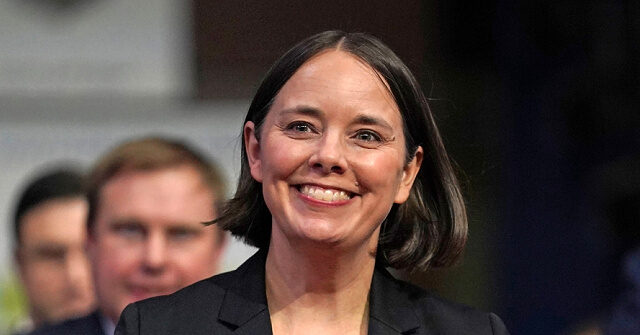
Maine Secretary of State Makes Legal Ruling Striking Trump from Ballot Based on YouTube Videos
Maine Secretary of State Shenna Bellows unilaterally ruled that Donald Trump is unqualified to appear on the 2024 primary ballot.
Maine Secretary of State Shenna Bellows unilaterally ruled that former President Donald Trump is unqualified to appear on the 2024 primary ballot despite lacking a law degree and substituting YouTube videos for due process.
Bellows, who previously worked as Executive Director of the Maine Chapter of the ACLU but is not an attorney and did not attend law school, made the legal conclusion in her ruling that “the declaration on [Trump’s] candidate consent form is false because he is not qualified to hold the office of the President under Section Three of the Fourteenth Amendment.”
The secretary of state, a Democrat whose social media is littered with photos of President Joe Biden, justified her ruling based on Section 3 of the Fourteenth Amendment’s “Insurrection Clause.” The statute has never been used to disqualify a president from the ballot and has generally been understood not to apply to the office of the president, although left-leaning plaintiffs have sued across the country in long-shot hopes of keeping Trump from appearing on primary ballots.
Bellows’ ruling that Trump engaged in the crime of insurrection comes despite Trump having never been convicted of that — or any other — crime, or even been charged in court with the crime of insurrection. He was acquitted by the U.S. Senate of charges of engaging in insurrection and continues to deny wrongdoing.
Her decision has met with widespread scrutiny.
CNN senior legal analyst Elie Honig said Thursday on Anderson Cooper 360 that Bellows’ decision to bar Trump from the ballot was based on “YouTube clips, news reports” and “things that would never pass the bar in normal court.”
While acknowledging the case is “legally unknown territory” — the Supreme Court has never ruled on Section 3 of the Fourteenth Amendment — the alarmed Honig argued that Trump has a good case that he did not receive due process.
“Were the processes, were the hearings fair?” he asked. “Did they comport with due process?”
He continued, “They heard from one fact witness, a law professor. [Bellows] based her ruling on a lot of documents, but also YouTube clips, news reports, things that would never pass the bar in normal court.”



